Alessandro Maestri walked to the center of the room, standing before a group of Europe's best pitchers. Nine years ago he was in their shoes, preparing to represent the continent and his home country of Italy on the mound during the Global Baseball Games against some of the most fearsome hitters in Japan. Now, after a playing career that took him everywhere from the Cubs’ Minor League system to Australia, South Korea and Mexico, the 38-year-old Maestri had returned to the Global Games as Team Europe’s pitching coach.
But as he started addressing his staff on March 6 hours before the opening game at Osaka’s Kyocera Dome, the nerves arrived. It was only Maestri’s second time coaching at any level, following a stint as a pitching coach at the Pirates’ Dominican Academy last summer. Were these pitchers, most of whom weren’t much younger than him, going to take him seriously despite his lack of coaching experience?
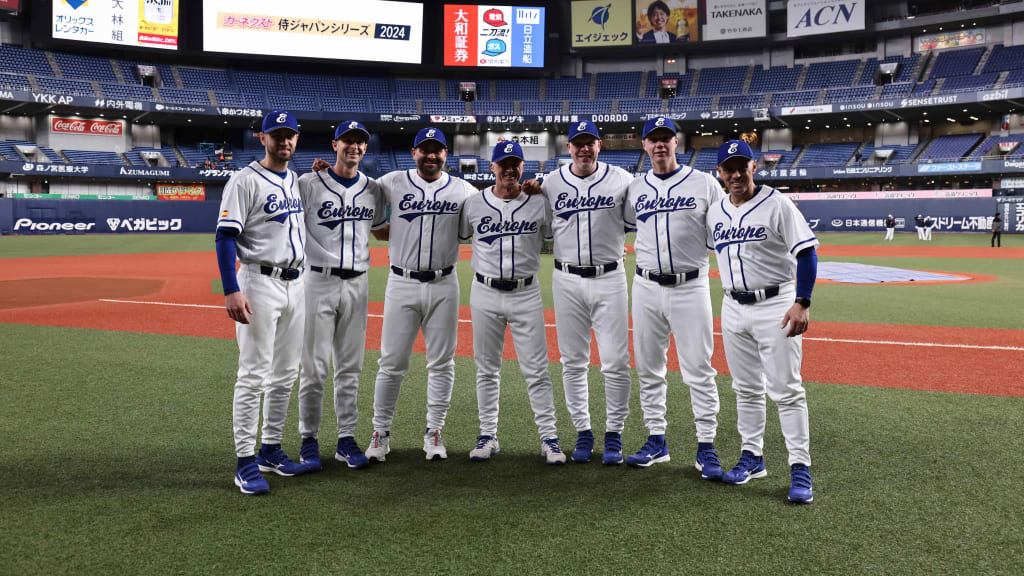
“I know when a young guy tells another young guy things, it's not the same,” Maestri said. “I was just nervous my message wasn't going to be well received. But I tried to be on the same level as them. I'm not above them now that I'm a coach.
“When you say a few things, you see them nodding their heads and you're like, ‘OK, maybe they're actually listening to me?’ I felt good about the way I went at it, but you should ask the players.”
Doing so confirms two things: Maestri hid his nerves well, but more importantly none of the pitchers were remotely concerned about the length of his coaching résumé.
“He had all the respect of the players as if he had 80 years [of experience],” Team Europe pitcher and fellow Italian Matteo Bocchi said. “I didn't see any doubt in him.”
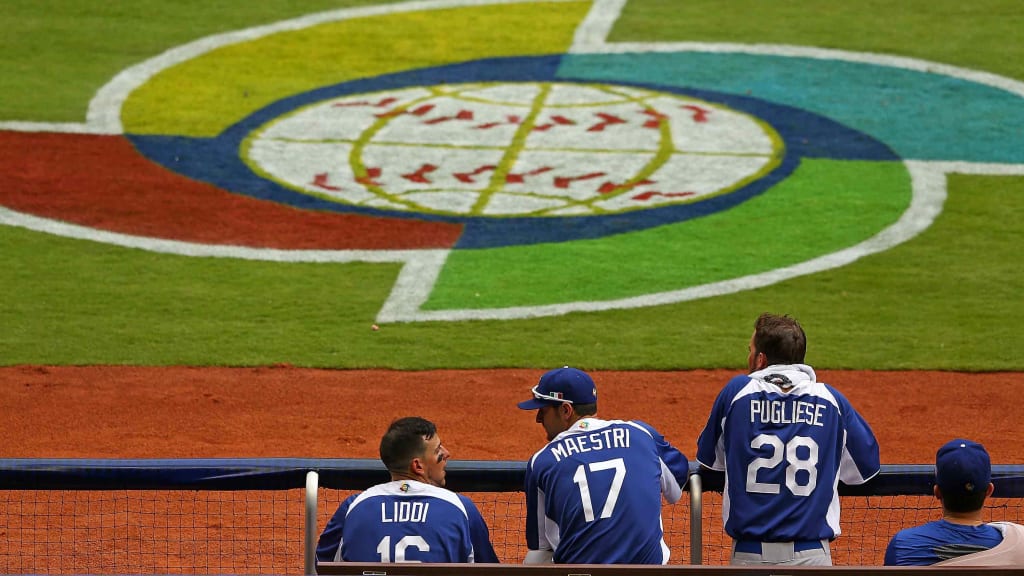
Such is the dichotomy between Maestri’s view of his venture into coaching and that of those he worked with. The former pitcher stays humble, seeing value in his time with both the Pirates and the Global Series but remaining reluctant to take much credit for what he brought to either job.
His colleagues and players tell a different story. One that features a consensus view that Maestri, thanks to a perpetually positive attitude paired with an unshakable desire to prioritize only the needs of his pitchers, has an extremely bright future in the world of coaching.
“I think the sky’s the limit,” Pirates pitching development coordinator Josh Hopper said. “He’s tremendous. It was never about him, it was always about the player. That comes through from moment one.”
Relating to players as a coach may have taken Maestri out of his comfort zone, but traveling over 8,000 miles between his first two gigs was hardly an adjustment. Not when you consider the map of his playing career. The right-hander joined the Cubs in 2006, becoming the first Italian-born pitcher to sign with a Major League team. But a promising start in Chicago’s Minor League system came to a halt in 2011 due to a shoulder injury and difficulty overcoming a case of the yips.

Released by the Cubs soon after, Maestri hit bottom. He sought help from a sports psychologist, and in doing so discovered relaxation tools he could use on the mound to settle his mind. These techniques, combined with a renewed focus on maintaining a positive mentality, helped him find a second life in his playing career. From Japan’s Nippon Professional Baseball, to the Korean Baseball Organization, to the Australian Baseball League, Italian Serie A1 and the Mexican League, Maestri spent the next nine years posting sub-4.00 ERAs more often than not on mounds all over the globe.
But in 2020, after 15 seasons pitching on numerous stages and representing Italy in four World Baseball Classics, Maestri hung up his cleats. When considering next steps, there was at least one post-career option he didn’t anticipate exploring.
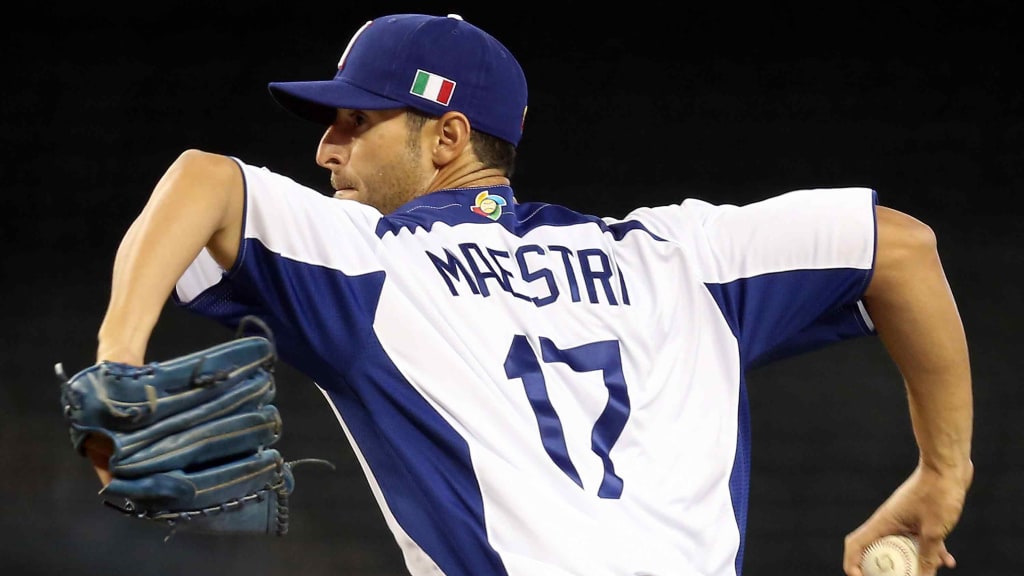
“I never really thought I was going to get into coaching,” Maestri said. “I was one of those players that tried to teach with example. I wasn't really good at talking, so I didn't see myself as a coach.”
To Maestri’s surprise, not everyone agreed with that assessment. Max Kwan, the then-Pirates assistant director of player personnel who knew Maestri from their time in the Cubs’ system, called him in 2022 asking if he’d be interested in spending some time at Pittsburgh’s Spring Training facility in Bradenton, Fla.
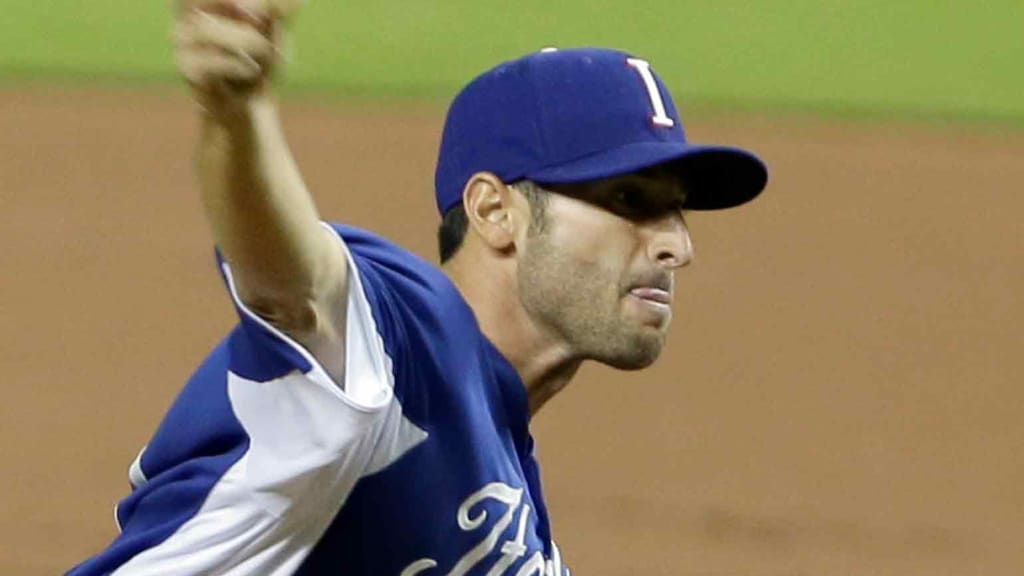
Maestri was on board, heading in from Italy to get to know the organization while assisting with the club’s extended Spring Training players. Three weeks later, he was back home, assuming the time spent in Bradenton was just a short stint lending a helping hand.
Unbeknownst to him, Maestri wowed so many in such little time that he’d suddenly become a clear candidate for a pitching coach opening in the Pirates’ Dominican Academy the following summer.
“He was so impressive when he was here,” Hopper said. “You could tell by the questions he asked that he’s an outside-the-box thinker, a guy that would take initiative. Even though he had not had any professional coaching experience, it was a no-brainer.”
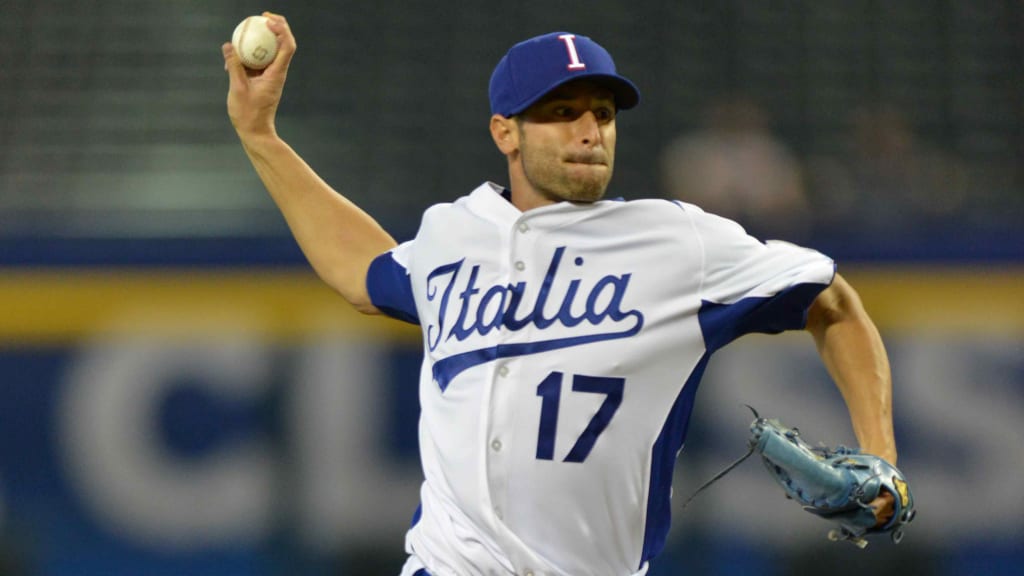
Maestri arrived at the club’s complex in El Toro ahead of the 2023 Dominican Summer League season nervous and unsure of what to expect. Though the Pirates made no qualms about this being his coaching debut, Maestri’s duties were hardly simplified. The pitching coach was responsible for handling pregame preparation, in-game adjustments, postgame review, pitcher development and pitch design. And each of these still took a backseat to what the team viewed as Maestri’s top priority.
“The biggest part is the mental part of the game,” Latin American pitching coordinator Amaury Telemaco said. “You're teaching the game to high-school-aged kids. They have the skill, they have the tools, but they have not been in competition. For some of them, this is the first time they are competing in high-leverage games.”
Adding to the challenge was the fact that Maestri was assigned to the youngest of Pittsburgh’s two DSL squads, which featured a 26-man pitching staff with an average age of just slightly over 18 years old. But as the Pirates soon learned of their new pitching coach, the size of the challenge did little to deter his dedication.
“I just tried to put all the hours in,” Maestri said. “Every day, 24 hours. I was staying in their academy, I wasn't even living outside. Day by day, just learning what the job was and trying to slowly transfer what my beliefs were.”
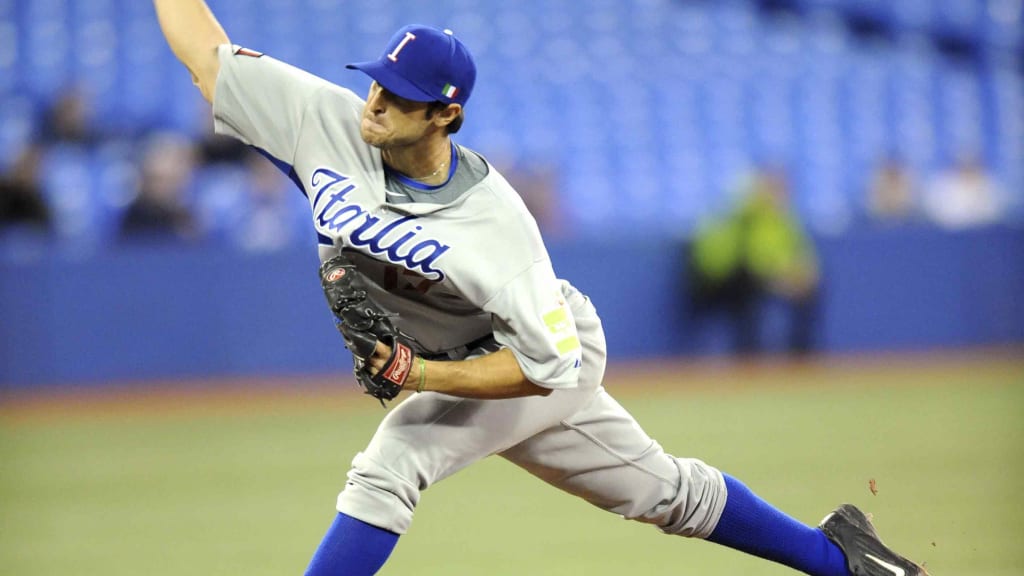
Maestri hosted meetings with his pitching staff every Monday, presenting PowerPoints he spent the previous weekend designing. He frequently worked with his players on the mound, teaching them to control their breathing in order to prevent the early exhaustion he was noticing during their outings. Maestri was quick to pick up on player quirks, observing which of his pitchers worked better with hands-off coaching and which seemed to thrive off a dose of trash talk.
His colleagues figured this ability to adapt instruction based on players’ personalities would represent one of the toughest aspects of the job. For Maestri, it came naturally.
“For some reason, that was the easiest part,” Maestri said. “It’s because of the fact that I struggled so much at some point in my career. I was always starting from that point, from the struggle. All the players are going to have a point where things are not going to be easy on them. You’ve got to be empathetic about that.”
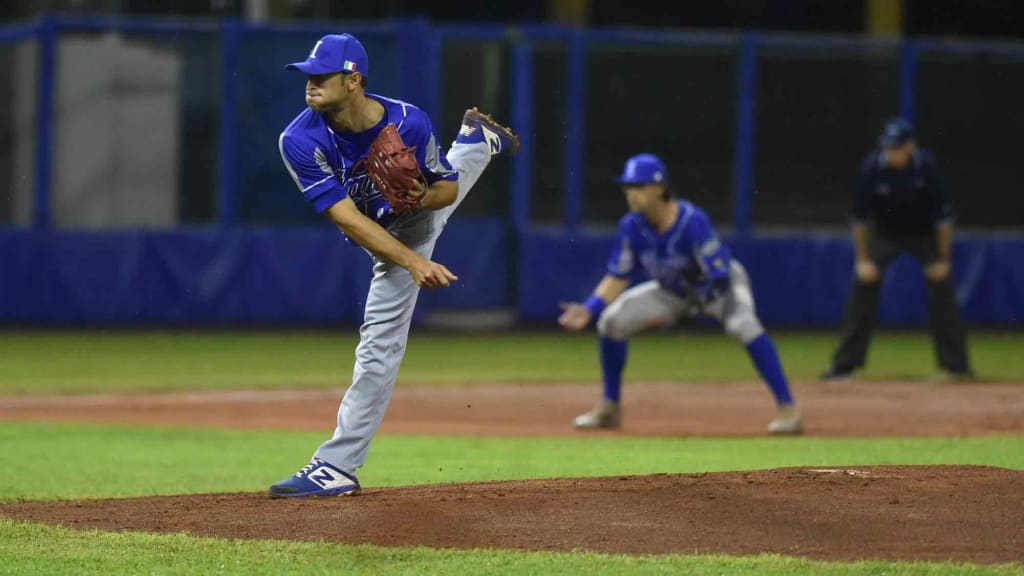
A prime example of this approach took place with right-hander Carlos Mateo. The then-17-year-old struggled to start his 2023 season, allowing five earned runs in his first outing and walking four in one-third of an inning in his next. Maestri, upon seeing the mental toll this was taking on Mateo, sat beside him to share his story. In his eyes, he was proof not just that hard times are inevitable, but that they can also be overcome.
True to form, Maestri is quick to avoid praise for the strikeouts Mateo began racking up on the mound. His colleagues, however, were happy to keep sending it his way.
“[Mateo] was having Maestri, every day, telling him, ‘Everything's going to be all right. You're going to be fine,’” Telemaco said. “Just to see Carlos perform during the Dominican Summer League, that was a totally different guy. I credit a lot of that to [Maestri].”
The Pirates’ unwavering adulation for Maestri’s work also helps explain how upset the team was to see him depart at season’s end. While their one-time pitching coach loved the experience, the distance from his wife and young daughter became too much to handle. But what Maestri provided to the Pirates was more than enough proof that he had what it takes to be a coach.
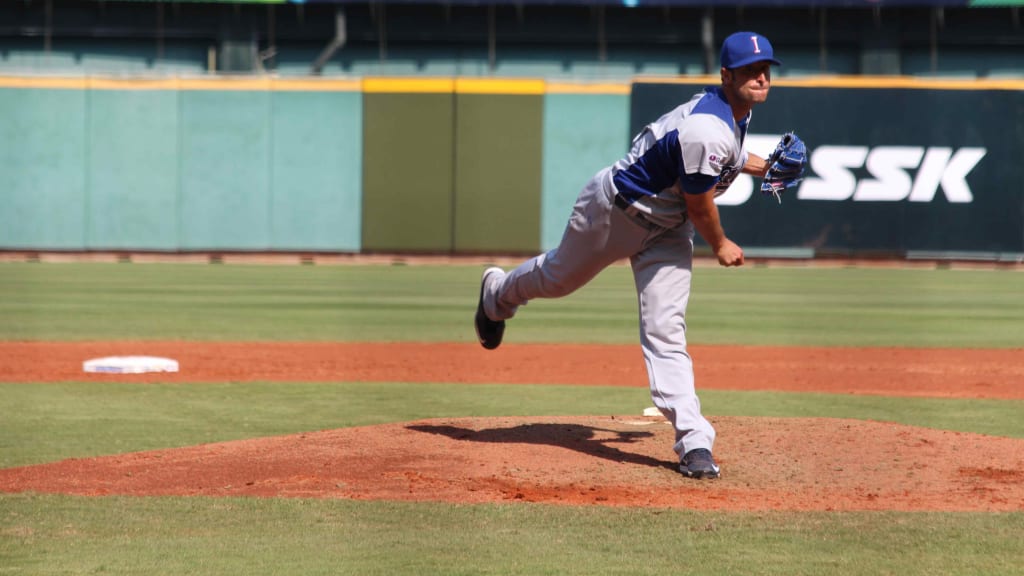
“I wish we had more coaches that were as open and willing to learn the information and apply it,” director of international development and mental performance Hector Morales said. “The desire to impact is there. The desire to learn is there. He's got a tremendous opportunity to be an impactful coach on multiple levels.”
Maestri’s next level arrived at the Global Series. While he was still coaching in the Dominican, Team Europe manager Marco Mazzieri reached out to gauge Maestri's interest in serving as his pitching coach. Though initially anxious, Maestri’s desire to return to Japan fueled his decision to accept.
Outside of the title, though, the similarities between this role and that with the Pirates were few and far between. Maestri’s focus shifted from an entire DSL season to two games played on a global stage. Gone were the days of teaching teenagers all located in the same spot, replaced with managing the training of an experienced pitching staff scattered across multiple European countries.
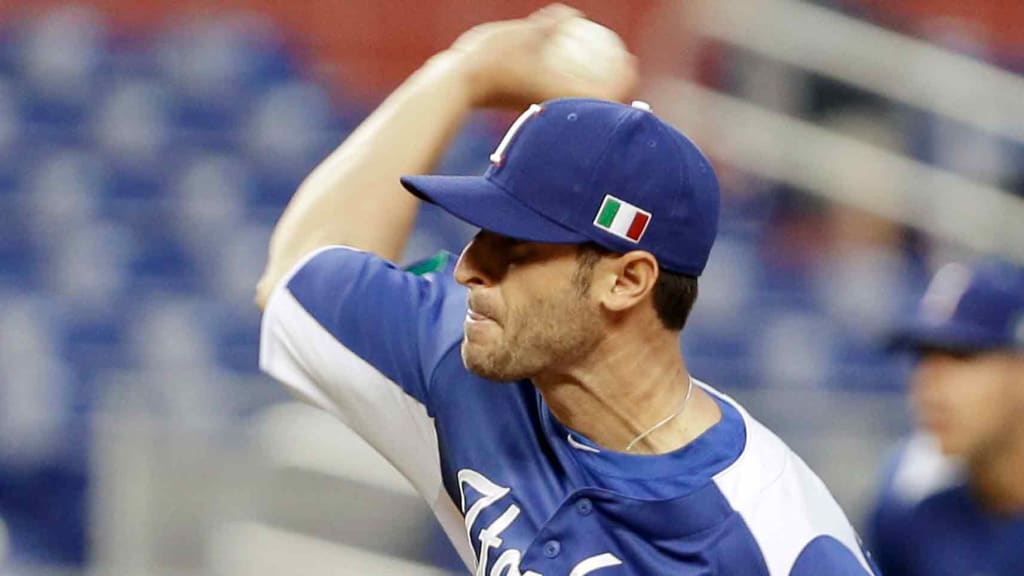
But the shift in the type of players Maestri was coaching did nothing to change his willingness to be there for whatever they needed. Having faced Japanese hitters in the past, he shared his insight on how best to approach Team Europe’s opponent. Maestri routinely checked in on his pitchers’ preparation, relaying his trust in them while always reinforcing it with encouragement.
To right-hander Sven Schüller, who spent his winter ramp-up throwing mock bullpens under a construction light outside a horse stable in the remote German town of Landshut, this feedback was invaluable.
“With his encouragement, it was easier to go through the tough times,” Schüller said. “It was always, ‘You’ve got it. You’ll be ready, keep doing what you're doing. You’ve got 20 to 25 pitches, these have to be the best of your life. And you will get to the point where you can deliver.’”
Maestri may have arrived in Osaka wondering if he’d be able to win his players’ respect, but thanks to his willingness to be unflinchingly uplifting from the offseason prep to the moment everyone got to the stadium, that mission was accomplished.
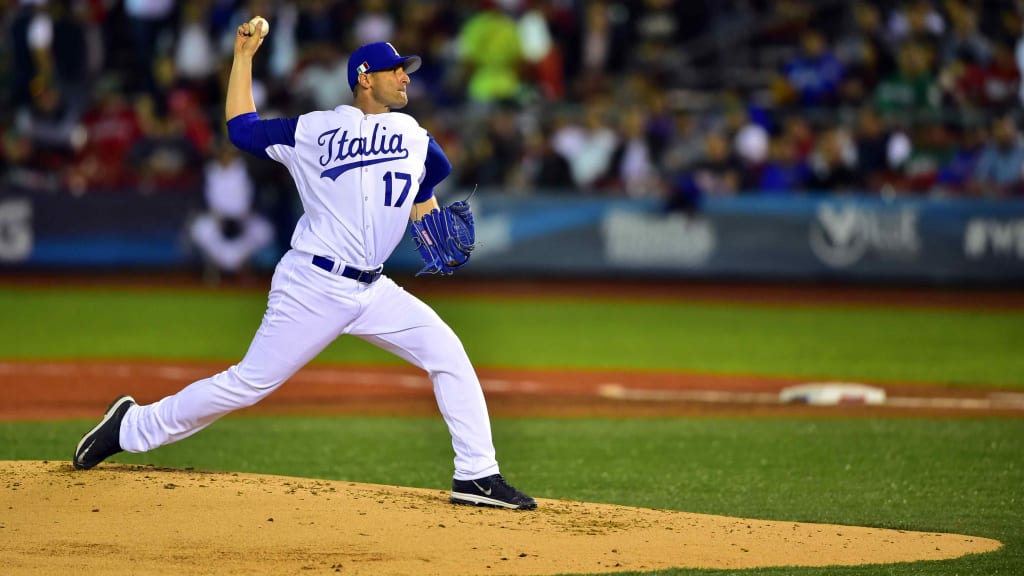
“He is there to help you,” Bocchi said. “He’s never mad, he's always smiling. Just having him there on the field all the time, following us at any moment, gave the players a lot of confidence.”
That conviction carried over to the mound. Though Team Europe fell in both of the Global Games, the bulk of the pitchers thrived, particularly in the tight 2-0 series finale. Schüller played a crucial role in that contest, striking out one during a scoreless sixth inning that he labeled as “a fight for every single pitch.”
Despite his trademark insistence he had nothing to do with this success, it was Maestri’s coaching – particularly his direction on attacking Japanese hitters inside – that played a major part.
“It gave me feedback that my strength was going to play,” Schüller said. “Being able to rely on my fastball and always being able to go back to that strength of mine, that really helped me feel comfortable on the mound.”
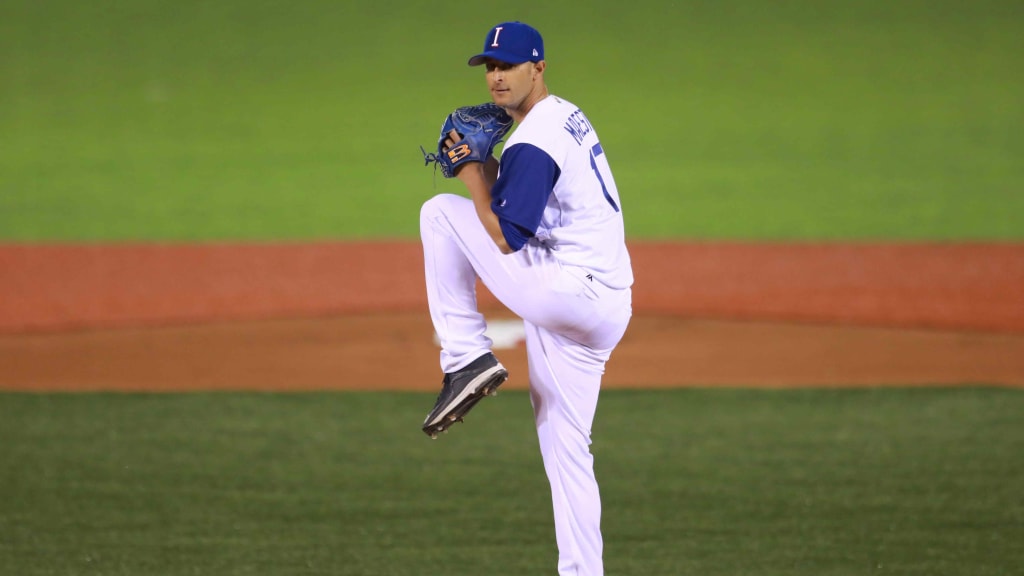
After seeing 10 of his pitchers make it through their respective outings without allowing an earned run against Team Japan, Maestri’s second coaching stint came to a close. He was back home in Italy a week later, enjoying life with his family while running Dominate, a sports equipment company he founded in 2017. He’s in no rush to pursue his next coaching gig, but maintains pride for the work he accomplished during his first two.
“I'm really happy,” Maestri said. “I didn't do it for much time, but I feel like the time that I was doing that, I gave my best. I'm sure I made a lot of mistakes, but at the same time, when you put everything you’ve got into something, you’re definitely going to do something right.”
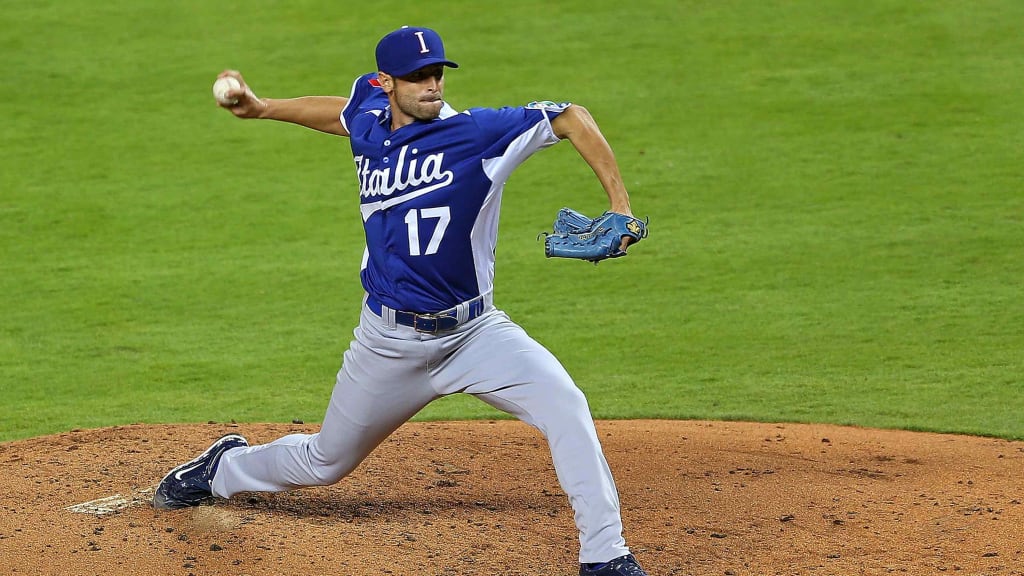
Of course, Maestri would hear a more enthusiastic assessment if he asked those who saw him coach. He made it a point to ensure each and every player he worked with felt their needs were his top priority, an attribute that still has everyone raving about his coaching potential.
The stream of positive feedback hasn’t stopped Maestri from reflecting upon his brief time as a coach through a lens of humility. Should he start exploring his next gig, though, the amount of people he impressed in just under one year of coaching has ensured he won’t have to worry about a lack of demand.
“If he decides to come back and coach and he doesn’t give me a call first,” Morales said with a laugh, “I’ll be extremely offended.”
